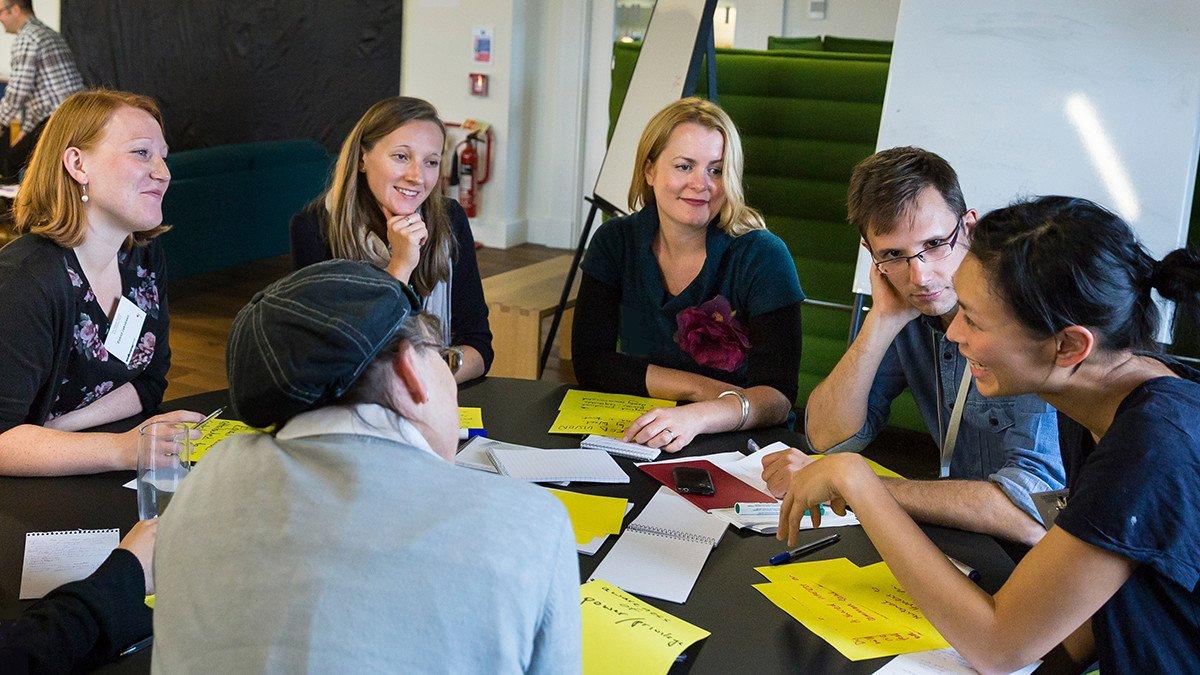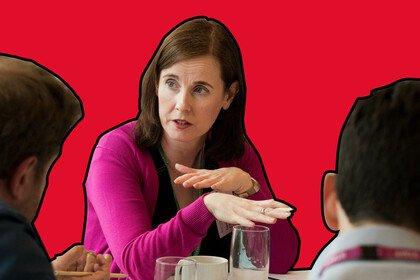
What can funders do to encourage inclusive research leadership?
Most funders say they want to encourage inclusive research leadership, but it isn’t always clear what they have in mind and what actions they’ll take. In the Humanities and Social Science team at Wellcome, we’ve been experimenting with some different approaches.

For research leaders, being inclusive requires constant reflection about how decisions are made and communicated. Everyone involved in delivering a research project should feel like they are playing a part in its management and operation, and that their role is valued by the team’s leaders.
Do I really mean everyone? The quick answer is yes, I do. Levels of involvement will vary but I think that anyone who is asked to join a research team should feel that they’re doing more than simply performing a task. They should – as much as possible – be able to share the vision for the project.
Being more inclusive will lead to a better culture
The need to include the voices of all team members to shape the direction of research is becoming more obvious. Numerous reports point to the sense of despondency and isolation felt across all academic disciplines. Wellcome’s recent research culture survey and the Royal Historical Society’s recent report Race, Ethnicity & Equality in UK History are two examples. As these reports show, a bad research culture causes distress, anxiety and career frustration for researchers. If this means researchers leave the sector, never enter it in the first place, or spend their careers feeling unheard and unvalued, then it compromises the future of research.
This isn’t just an issue in the UK. Maureen Kelley, a Wellcome Collaborative Award holder at the University of Oxford, explains the situation that researchers from low- and middle-income countries often face when they collaborate internationally: 'For many colleagues, the dependency on research funding from high-income country institutions means that the research agenda has already been set. They’re invited to come along for the ride and be grateful for the opportunity. It’s well past time to flip this model and see what ideas and collaborations emerge.'
We’ve launched two new funding calls
Funders are united in saying this is a problem, but what can they do?
In the Humanities and Social science team, we’ve launched two new funding calls – Research Development Awards in Humanities, Social Science and Bioethics and International Exchange Programmes in Humanities, Social Science and Bioethics. For these calls, only half of the assessment criteria focuses on the research that will be done. The rest is about providing evidence of an inclusive leadership structure, and a commitment to the career development of everyone working in the team.
This is important for the researchers hired to work on a project, but it’s also important for all the other staff that can make research projects thrive: project managers, copy-editors, facilitators and artists, to name a few examples. All too often such staff rely on occasional contracts for the minimum amount of time. This is a bad deal for the people that take these roles and a bad start for trying to deliver innovative research.
By assessing inclusive leadership in our schemes, we hope to give applicants the chance to think in detail about how they could do this creatively. Cutting and pasting a university’s career development or diversity and inclusion policy won’t be enough.
Inclusive approaches can be informed by academic concepts and methods. The Centre for Biomedicine, Self and Society at the University of Edinburgh, established in 2018, provides a good example of this. The Centre has developed a feminist approach to research leadership, where key aspects, like direction and support, are informed by feminist scholarship and practice. This has an impact on how leadership is shared.
As Professor Sarah Cunningham-Burley, the Co-Director of the Centre says: 'Sharing leadership through democratic structures promotes dialogue and challenge: it enables creativity and is always much more fun than the norm of a single director, who, let's face it, could never do everything anyway.'
Universities and funders must work together
None of this is easy. As Maureen Kelley says: 'It means letting go of rigidly predetermined outcomes, which one might think is nirvana for a humanities and social science project, but can cause a lot of anxiety.'
The good news is that more and more research leaders are trying out different ways to be inclusive. In designing our new schemes, we've seen a wealth of exciting examples of how researchers make inclusivity part of everything they do.
The schemes are just one way Wellcome is thinking about how to deliver more inclusive approaches to research. We hope they will provide useful lessons about what works, and where we can still do more.
It’s clear to us that researchers and their teams are the best source of inspiration on how to improve all aspects of research culture. Through our campaign to achieve a better culture, we’re looking forward to hearing people’s ideas and solutions.

